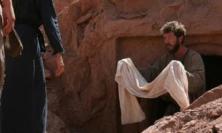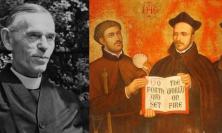Mark D. Chapman is Vice Principal and Lecturer in Systematic Theology at Ripon College, Cuddesdon, Oxford. He is the author of Blair’s Britain which attacked what he saw as vague thinking by New Labour on ‘community’ and ‘Britishness.’ In writing Doing God: Religion and Public Policy in Brown’s Britain, Chapman advocates a new approach to politics. He argues for decentralisation, wealth redistribution and localism. He wants to convince us of the need to understand Christianity in terms of justice and mercy rather than merely fellowship and community. If ‘soft power’ Christian politics emphasises community then ‘hard power’ justice is Chapman’s rallying call. But does his thesis stack up? As head of Public Policy for Faithworks, an ecumenical network of Christians involved in engaging community and politics, I ask whether this book rings true for me with regard to the public policy dilemmas of effective Christianity in contemporary Britain’s political landscape?
In the United States religious language has been used openly by politicians of all hues; however, in the United Kingdom it seems religion is a bit like sex – a private matter which should take place behind closed doors. Chapman writes at length about the struggles that Tony Blair endured as Prime Minster in trying to reconcile his personal faith commitment with a career in politics. The former Prime Minister was afraid that the British Press would label him a religious fanatic.
Doing God argues that contemporary Britain is a secular nation, one where ‘God bothering’ politicians need to tread carefully and quietly. Chapman reads the tea leaves of the 2001 census, Tearfund’s 2007 report on religious observance, and other studies, to conclude that two thirds of the nation are non-religious. However this does not help deal with a recent radicalisation of religion to which secularism has struggled to respond. Chapman states that pluralism is needed, but that it must be of the right sort: bottom up and local, and not contradicted by an overly centralised Government. Central to Chapman’s thesis is not merely that difference be respected, but that those values that bind us all together must be brought to the fore. The hub of his argument is that both the State and its constituent communities must flexibly argue out their points of difference and agreement. Top-down has failed and the Government must realise this.
Chapman also analyses the way that the ‘new localism’ has shaped government policy and the tensions between national and local government. Robert Putnam’s Bowling Alone thesis of community breakdown is explored in the light of the contemporary focus on ‘social capital’ and its supposed decline, as evinced in the claimed dearth of local community activism and neighborliness. However Chapman points out that New Labour has been attempting to wrestle with encouraging communities for over a decade. One might also point out that Cameron’s Conservatives are heavily influenced by the Conservative Christian Fellowship-linked Centre for Social Justice. All three major political parties are espousing ‘social justice’. Labour even set up a Government ‘Department for Communities’; but is it working? Chapman is unimpressed with our rosy historical recollections of community; he argues that we are harking back to an age that didn’t exist. He is also unconvinced that the Department of Communities can encourage greater localism, especially if its suggestions run the risk of clashing with more powerful Whitehall Departments?
I have been intrigued to observe the emphasis given to importance of charities, voluntary groups and civically minded institutions in Gordon Brown’s speeches. From the Co-Op to the Corporation of London, institutions that display civic virtue are a great British tradition. When Gordon Brown became Prime Minister in the summer of 2007 he seemed to hint at a greater decentralisation of powers. Hazel Blears, the Secretary of State for the Department for Communities has certainly been very keen to encourage ‘localism’, ‘community empowerment’ and increasing engagement with the ‘third sector’. However, the lesson of history seems to be that Governments find it very hard to give away power. There is also the problem of how any central Government actually delivers or encourages local activity without looking as though it is controlling from the centre. Chapman claims there is a ‘devolution of delivery, not of policy making’ This had lead to a ‘target culture’ which is increasingly under attack, but brave would be the politician of whatever hue who not only gave away power, but also refused to meddle when things go wrong.
So where is the role of religion within this sphere of community and society? Chapman argues that religion is less about beliefs and more about practices and public commitment. It therefore inevitably affects the way in which people relate together politically. For example, the root of very public debates about permissible religious dress could actually be a disagreement about what should be private and what should be public. This debate about how difference can be accommodated is set in its wider context by efforts to achieve ‘community cohesion,’ Chapman points out that the danger for such attempts at cohesion is that communities often have overlapping cultural, national and religious identities. It seems that even the very term ‘community’ is open to interpretation. Chapman defends Archbishop Rowan Williams’ lecture on Islam and Sharia Law. He is of the view that the current Primate has astutely observed the need for an ‘interactive pluralism’, a form of ‘community cohesion’ that Chapman believes would actually deliver. Chapman believes that ‘interactive pluralism’ would establish the church’s role as a critical friend to the state, and the state would not assume it was right. Subsidiarity of decision-making would be coupled with maximum freedom for the individual and their community from the State. In Rowan William’s political theology, the frailty of human structures is a deep truth. The flaws of the church, of Government, of secularism, show that we must hold ideological certainties lightly. However, the risk here is that we don’t engage with Government properly at all and maybe even refrain from taking part in publicly funded service delivery because of a fear of being ‘co-opted’ by Government. Chapman also seems to hedge his bets on uniting national myths; even the Union flag is problematic.
However despite occasionally overly intense bouts of introspection about our national contradictions, three points stood out for me in Chapman’s thesis:
(i)The importance of religion to individuals and communities needs greater recognition;
(ii)Government is over-centralised and has commodified politics into ‘choice’ for the consumer not civic duty for the citizen;
(iii)Local democracy needs strengthening.
Despite agreeing with many of his observations, I find that two glaring problems stand out. Firstly the democratic problem of the rejection by the English regions of self-government coupled with continued national cynicism about local government. Secondly, and more profoundly, the problem that many voters seem to want the nation’s problems solved without making much effort themselves. This seems to attract the politician who is prepared to over-promise and under-deliver. We need active citizens and modest politicians. However at present we seem to get modest citizens and hyperactive politicians.
The solution rests with our individual choice to get engaged with society. Perhaps we could each do with asking ourselves the question: “How am I doing God, in Religion and Public Policy in Brown’s Britain?”
The reviewer, Gareth Wallace, is Policy Networks Development Manager for Faithworks.
![]() Find this book on Darton, Longman and Todd's web site
Find this book on Darton, Longman and Todd's web site![]() Faithworks
Faithworks






